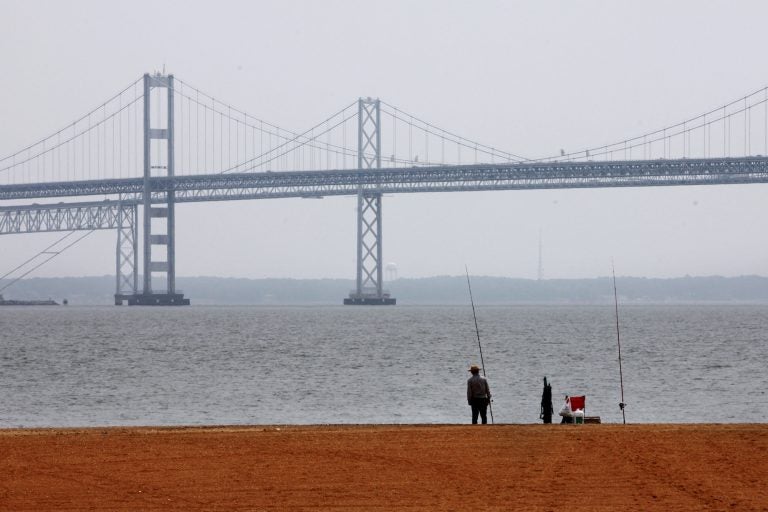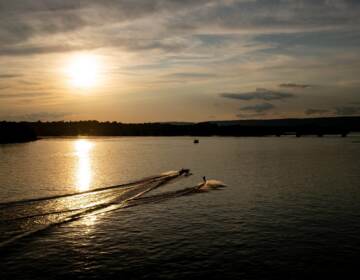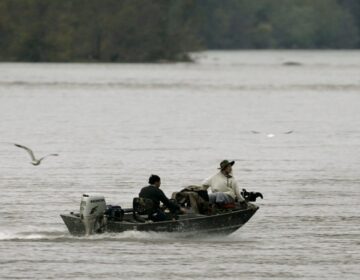Chesapeake Bay watchdog criticizes Pa. over pollution reduction progress
A nonprofit that tracks pollution in the Chesapeake Bay said Pennsylvania has failed to protect the nation's largest estuary from farm manure and stormwater.

For an annual report card evaluating the 200-mile-long bay, researchers at the University of Maryland Center for Environmental Science on Tuesday, May 21, 2019 gave the Chesapeake a grade of 46% for 2018, down from 54% in 2017. All of the indicators factored into the bay's health index declined or stayed flat last year. (Jacquelyn Martin/AP Photo)
A nonprofit watchdog for the Chesapeake Bay said Pennsylvania isn’t on track to meet pollution reduction goals by 2025.
State environmental regulators disagree.
A new report from the Chesapeake Bay Foundation said Pennsylvania’s plan to curb nitrogen, phosphorus, and sediment flowing into the nation’s largest estuary falls about one-third short of the goal set by the Environmental Protection Agency.
“Demonstratable, scientific improvement is occurring not only in the Chesapeake Bay but also in the rivers and streams that feed into it, like the Susquehanna,” said Harry Campbell, executive director of the foundation’s Pennsylvania office. “The pace of implementation, the pace of improvement has not kept up.”
The report faults the state for not allocating enough money for the effort, especially to Pennsylvania’s family farms.
Campbell noted wastewater systems have done a great job meeting their goals.
“Agricultural folks, as well as urban and suburban stormwater sectors, have not kept pace with that implementation and it’s because of the lack of investment. Overall sufficient investment in the resources [are] necessary to get the job done,” Campbell said.
In a statement, the state Department of Environmental Protection said best management practices in place across the commonwealth are not getting credit in the EPA’s accounting of pollution loads.
It said the plan provides reasonable assurance that Pennsylvania will meet its Chesapeake Bay commitments.
WHYY is your source for fact-based, in-depth journalism and information. As a nonprofit organization, we rely on financial support from readers like you. Please give today.




